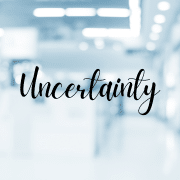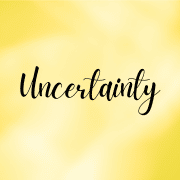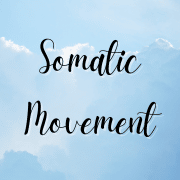 Employee wellbeing is a hot topic at the moment, but do you really understand how to look after your own wellbeing when you work in a high-stress environment?
Employee wellbeing is a hot topic at the moment, but do you really understand how to look after your own wellbeing when you work in a high-stress environment?
Any role that is customer facing is stressful. The Service Desk Institute realise how difficult it can be for Service Desk staff to know how to cope with stress and how critical it is to have the right support in place.
I joined us as one of our leading breakout speakers at The Conference for Service Desk Leaders 2018 to discuss the importance of wellbeing in the workplace.
What are the 5 Pillars of Wellbeing?
I particularly like the phraseology of Dr. Rangan Chaterjee in his book “The 4 Pillar Plan. How to relax, eat, move and sleep. Your way to a longer, healthier life”. The art of wellbeing or being well is to have all of these four elements in balance. The one extra I would add is mindset.
As well as the stress of dealing with people we live in an age where we are overwhelmed by data and deadlines and we are on fully connected overdrive. How many of you get up in the morning and the first thing you do is reach for your phone, check your social media and your emails?
Our adrenal glands get overstrained. The adrenal glands secrete adrenaline to help your body respond to stress, but they also regulate many vital processes in your body, such as metabolism. Constant stress is like putting your foot on the accelerator all the time, at some point you are going to run out of petrol. It is also like overloading a PC with different processes.
It is absolutely critical to give the body a chance to reset and engage the parasympathetic nervous system, which is the equivalent of putting your foot on the brake, or if you think more in PC terms, a reboot.
Here are some ways to consider that might help you look after your employee wellbeing. Always check with your GP or other suitably qualified medical professionals about a lifestyle change or before embarking on exercise.
Relax
Every person is different so everyone will find different activities relaxing. The important thing is that you do take some time for self-care. This allows the body to do that essential reboot. A morning meditation session, where everyone knows not to disturb you, might be your relaxation. Maybe it’s that hot bath with a good book, last thing at night. Perhaps you have a particular hobby or interest that is your “YOU” time. If not, learning something new is a great stress buster and has numerous other benefits for the brain too.
If you are at work and you have a particularly difficult customer, then how about resetting right after the call. I personally love the Hayo’u Method. Try this reset ritual:
https://www.hayoumethod.com/the-rituals/reset-ritual/
If you can’t leave your desk then some slow deep breaths can really help. Put your elbows on the desk and cover your eyes with your hands and block out the light. Leave a gap between your hands and eyeballs, like a cup. Breathe in 4 counts. Hold 4 counts. Out 4 counts. Hold 4 counts. Repeat. If 4 does not suit then find your own rhythm.
Eat
Eating a healthy diet is critical to overall wellbeing. However, I am not about to prescribe a particular eating regime. Your GP or a qualified nutritionist is the best person to approach. They can help you find what works best for your lifestyle and body type.
The tendency, when we are stressed, tired and busy, is to choose convenience foods, alcohol and sugary foods. All of these actually put more stress on the adrenals and therefore make the body more stressed. Make sensible choices but be kind to yourself, an occasional reward is also good for you. It keeps you motivated and keeps levels of enjoyment high.
Make sure you encourage your employees to take a proper break at lunchtime and eat appropriately!
Move
Exercise is a great way to relax and de-stress so it might be your choice of relaxation too. It releases endorphins, which gives a feeling of wellbeing. The key is to find out what you enjoy. If it is fun then you will keep doing it. Whether it is pumping iron at the gym or taking a class. Following a High-Intensity Interval Training (HIIT) programme, running with a group in the park or doing a dance class it all helps. If that all sound a bit energetic then slower exercises are also great. Try Tai Chi, Pilates or Yoga. There are some great online resources if you don’t want to go to a gym. If you are embarking on exercise for the first time do check with your GP.
If you don’t have much time then there is a lot of research about short workouts with maximum benefits. Watch “Trust me I’m a Doctor” on BBC for some ideas.
What about taking your employees on a walking meeting. Encouraging people to walk round the block if they are working from home.
Sleep
A good nights sleep is so critical for feeling energetic and healthy. Stress can mean you spend the night lying awake trying to sleep and watching the minutes tick by, then waking up in the morning feeling tired and grumpy. If you suffer the occasional night of bad sleep this might help. If it is more prolonged then do have a chat with a qualified medical professional.
Choose your preferred relaxation method to help you switch off. Leave any phones, tablets, TV’s off and preferably out of the room altogether. Even reading can hinder more than help. If you do find yourself running through things then get up and write them all down and then go back to bed. Getting them on paper can help clear the mind. If you wake up several times in the night, then try going to bed slightly later and getting up slightly earlier. It can help reset the body clock.
Mindset
Above all be kind to yourself. Think about how you would talk to a loved one and treat yourself with the same respect. Keeping a journal or diary can help uncover unhelpful behaviour. Half the battle is recognising it, then you can do something to change it. Look for times when you are stressed and you have no control of the situation.
Perhaps you are driving and there is a traffic jam. Can you change it? “No”. What you can do is take the time to do some deep breathing exercises, listen to your favourite music and enjoy the scenery. Well that feels so much better, right? Keeping a journal of instances like that can help you notice patterns and stress triggers.
A journal can help you make changes that will lead to a more resilient you. Greater resilience means greater capacity to cope with stress and with change. It means you are more likely to do something that you are fearful of and try it anyway. This in turn builds confidence, self-esteem and resilience. It directly impacts your ability to feeling and being well.
Now over to you
What changes are you going to make to improve your own wellbeing? What are your goals? Go write them down. Now create an action plan made up of small steps to achieve your goals. Small steps lead to constant wins and are the most sustainable. Remember your wellbeing, your way. Be Well!
If you are interested in finding out more about how to manage stress then I would love to connect.
Here’s my calendar link to make finding time easy.











